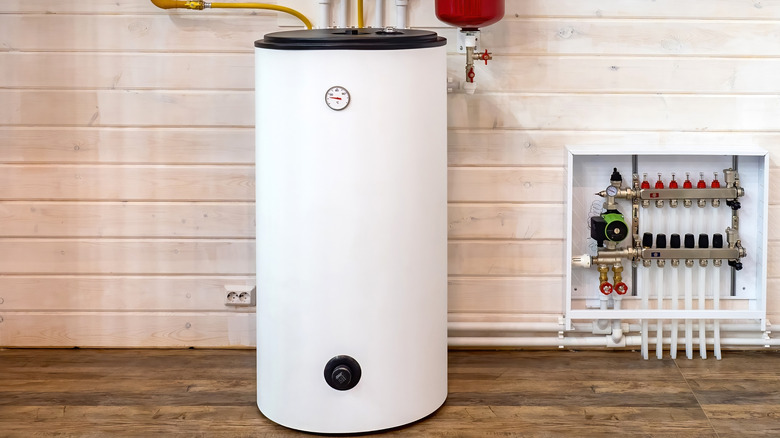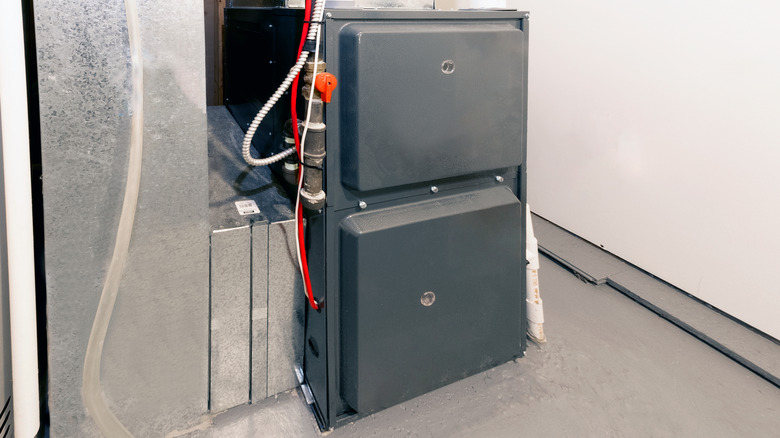Boiler Vs Furnace: What's The Difference And Which Is Better?
Keeping a home warm and comfortable during the bitter winter months is a necessity. There are several different options to heat your home, and it's important to choose the right system for your needs. When it comes to heating systems, most homes are equipped with either a boiler or a furnace. Both are used to heat the interior of the home, but the boiler utilizes water while the furnace does not. A furnace creates hot air that is blown and circulated throughout the interior. A boiler, on the other hand, heats water, and then the warmth from the hot water is carried through the house.
Both can be powered by natural gas, oil, or electricity. A boiler creates radiant heat that travels through the home's pipes while a furnace forces hot air through ducts. Furnaces can be paired with heat pumps for hybrid heating, while boilers are used for radiant heating in floors and walls. Between the two, boilers are believed to offer more consistent heat. However, a boiler will take more time than a furnace to get going, so don't expect to feel the incoming heat immediately. A furnace will distribute heat at different times as needed, meaning that the heating power will be activated if the area reaches below a certain temperature.
How to pick the best heating system for your home
When deciding between a boiler and a furnace, consider the characteristics of your home and let that inform your decision. For example, if you have a relatively small space, a compact furnace will likely be a better fit than a large boiler tank. However, if you're looking for a system that doesn't require much of your attention, a boiler is more hassle-free as it can usually run for months without needing any updates. A furnace requires regular upkeep as its filters will need to be replaced every month or so. It will last close to 15 years, but the cost of a new replacement furnace can be around $4,800.
Boilers are a bit of a headache up front in terms of price and installation, but are easy to maintain thereafter. On average, it should cost just below $6,000, and will typically last around 10 to 15 years before you need to buy a new boiler. It's best to have a professional inspect the unit annually to ensure it runs smoothly. Over time, you may need to dedicate a few hundred dollars to repairs. Fortunately, boilers are quiet and energy efficient, so they won't raise your utility bills.

